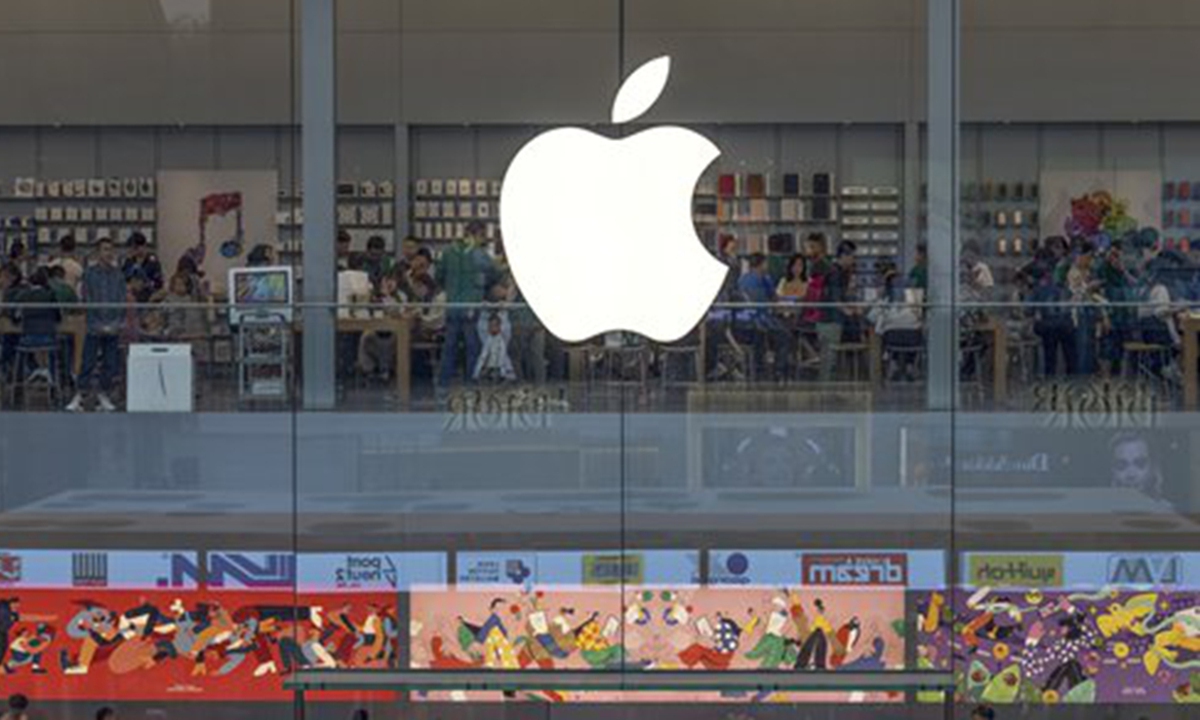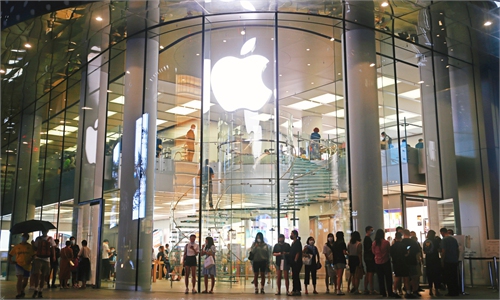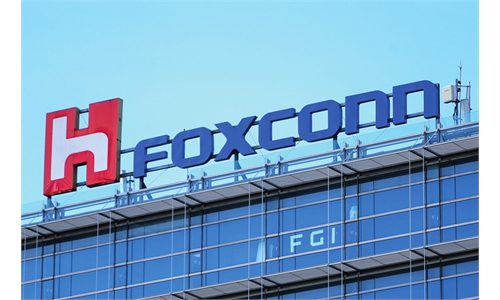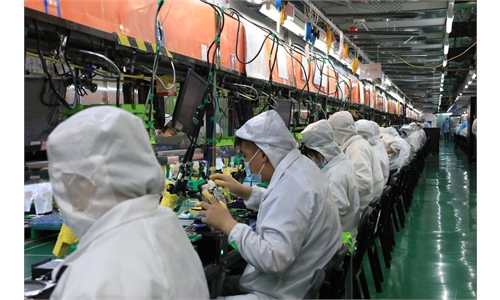
An Apple store in Chengdu, Southwest China's Sichuan Province. Photo: IC
Apple updated a more powerful in-car operating system CarPlay on Monday with ambitions for a presence in the smart car sector, but analysts said it would be very hard for Apple to achieve large-scale application of the software in China, mainly due to security concerns and a declining user base in the market.Apple unveiled a new version of CarPlay, which deeply integrates with a car's hardware, at its 2022 Worldwide Developers Conference on Monday.
The next generation of CarPlay will allow users to do things like control the radio. Using the vehicle data, CarPlay will seamlessly render the speed, fuel level, temperature and more on the instrument cluster, according to Apple.
Apple said that it is working with automakers such as Ford, Nissan and Mercedes-Benz to bring the latest version of CarPlay to new models.
"Apple CarPlay will come to Polestar 2 as part of an OTA [over-the-air] update later this month. We're also thrilled to announce that the next generation of CarPlay will be coming to Polestar cars," said Polestar via Twitter on Tuesday. The premium electric vehicle maker is owned by China's Geely and Volvo Cars.
Although some small carmakers may adopt CarPlay to offer a better driving experience for iPhone users, most Chinese automakers will avoid it out of security considerations, Wu Shuocheng, a veteran automobile analyst, told the Global Times on Tuesday.
"Smart car brands seldom buy key software systems developed by other companies due to concern about losing their core competitiveness," he said.
Carmakers would also face problems such as data security and ownership, according to Wu.
In addition, an iPhone needs to be synced to a vehicle in order to use CarPlay, and the declining market share of iPhones may limit the use of CarPlay in the Chinese market, analysts said.
In the first quarter, Apple accounted for 18 percent of China's mobile phone market in terms of shipments, down 4 percentage points quarter-on-quarter, data from global consulting firm Counterpoint Research showed.
Liu Ting, an owner of Nio, one of best-selling electric cars told the Global Times that the in-car operating system for her car was developed by the automaker itself, and it integrates functions including central display, health and fitness, and emergency driver assistance.
"The updated features will meet my needs, and Apple's CarPlay may not offer drastic changes," Liu said.
Many carmakers are developing software to improve their global competitiveness, making it harder for Apple to encroach on the crowded Chinese market.
For example, China's carmaker SAIC Motor said in March that it would establish an innovation headquarters with an independent research and development team of more than 10,000 people, in a bid to improve its core capabilities such as a software platform for intelligent driving, big data and cloud computing for developing next-generation intelligent EVs.
To accelerate the process, SAIC would invest 300 billion yuan ($45.03 billion) to develop new energy and intelligent vehicles from 2021-25.



